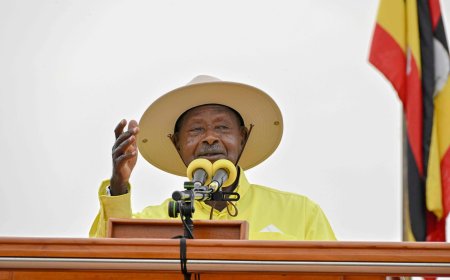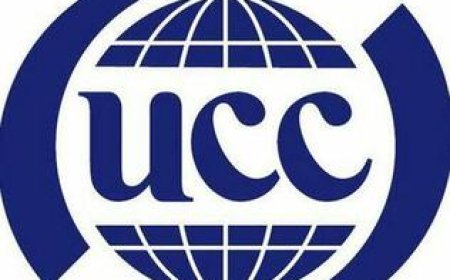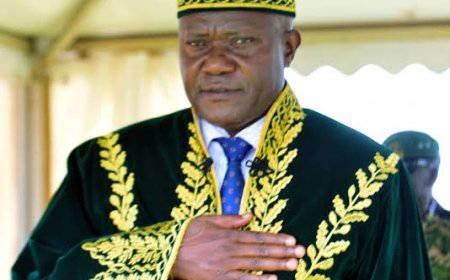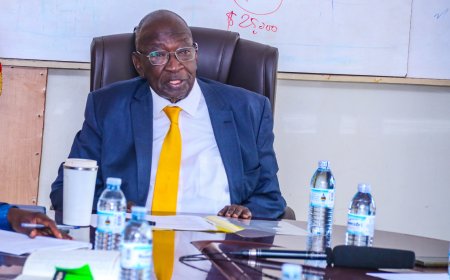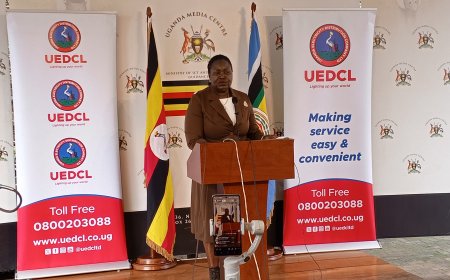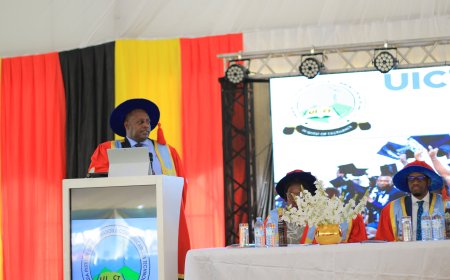Supreme Court Blocks Enforcement of $10 Million Debt Against Businessman Patrick Bitature
The order, delivered by Justice Elizabeth Musoke, preserves the status quo while the country’s highest court considers arguments in Bitature’s application for further appeal.
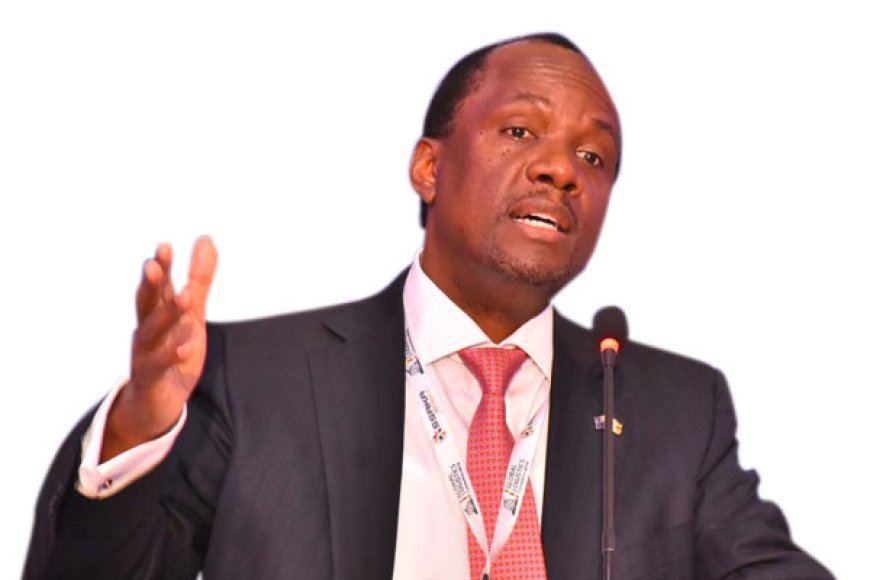
Uganda’s Supreme Court has issued an interim order temporarily stopping the enforcement of a Court of Appeal ruling that had cleared the way for the collection of a $10 million debt from businessman Patrick Bitature and his Simba Group companies.
The order, delivered by Justice Elizabeth Musoke, preserves the status quo while the country’s highest court considers arguments in Bitature’s application for further appeal. The decision effectively freezes all enforcement actions tied to Civil Application No. 305 of 2025, which had stemmed from a long-running commercial dispute between Bitature and Vantage Mezzanine Fund II, a South African private equity lender.
Preserving the Status Quo
Justice Musoke noted that the interim order was necessary to prevent what she described as “irreparable harm and prejudice” that could arise if enforcement proceeded before the Supreme Court had a chance to fully examine the appeal.
“The purpose of this interim order is to maintain the status quo pending the determination of the substantive application,” she ruled, adding that halting enforcement would ensure that justice is not rendered nugatory if the appeal succeeds.
The Supreme Court’s intervention temporarily suspends the Court of Appeal’s August decision that had allowed Vantage to move forward with debt recovery from the businessman and his companies.
How the Dispute Began
The case dates back to 2014, when Vantage Mezzanine Fund II extended a $10 million mezzanine loan to Simba Properties Investment Company Ltd, one of the entities under the Simba Group. The facility was intended to support the expansion of Bitature’s business interests, including real estate and hospitality ventures.
However, the relationship soured when Vantage alleged that the loan had not been repaid as agreed. The dispute was referred to arbitration under the International Chamber of Commerce (ICC), where Vantage sought to enforce its rights over collateral, including shares and properties linked to the Simba Group.
In 2023, the High Court in Kampala issued an order maintaining the status of the mortgaged properties and shares, pending resolution of the enforcement proceedings. But in August 2025, the Court of Appeal struck out Bitature’s legal challenge, ruling that Uganda’s Arbitration and Conciliation Act did not provide for such an appeal. That ruling effectively opened the door for Vantage to collect the debt—until the Supreme Court stepped in this week.
A Pause, Not an End
Legal experts note that the Supreme Court’s stay does not resolve the substantive dispute; it only pauses enforcement. The justices will now consider whether Bitature’s appeal raises legitimate questions of law that merit a full hearing.
If the Supreme Court eventually allows the appeal, it could redefine how Uganda handles the enforcement of foreign arbitration awards and reshape the balance between investor rights and local judicial oversight.
For now, however, the interim order buys Bitature crucial time.
Bitature’s Profile and What’s at Stake
At 65, Patrick Bitature remains one of Uganda’s most recognizable entrepreneurs. He established Simba Group in 1998, beginning with Simba Telecom, an MTN Uganda franchise that became one of the country’s leading telecom distribution firms. Over time, the group diversified into real estate, energy, hotels, mining, and agribusiness, with major investments such as Protea Hotel by Marriott in Kampala, and stakes in power generation ventures.
But the Vantage debt case has cast a long shadow over his empire. For years, his companies have faced mounting legal and financial scrutiny as the case moved through various courts. The prospect of asset seizures and forced sales has loomed large, threatening both his reputation and corporate stability.
A final ruling against him could force the disposal of key holdings and diminish his standing among Uganda’s top business figures. Conversely, a favorable decision could be seen as a vindication — reinforcing the judiciary’s willingness to scrutinize the enforcement of foreign arbitration awards and to safeguard local enterprise.
Broader Implications for Uganda’s Investment Climate
The high-profile nature of the case has attracted attention from regional creditors, investors, and policymakers, who see it as a critical test of Uganda’s commercial justice system.
The Court of Appeal’s earlier decision was welcomed by international lenders, who argued that it strengthened Uganda’s reputation as a jurisdiction that honors arbitration commitments and enforces debt obligations. However, local business leaders have expressed concern that such enforcement could expose Ugandan companies to unfair pressure and limited recourse under foreign arbitration systems.
The Supreme Court’s stay, therefore, reintroduces uncertainty—balancing creditor confidence against the need to protect domestic borrowers’ rights.
What Happens Next
The Supreme Court will now schedule hearings to determine whether Bitature’s intended appeal can proceed and, if so, whether the Court of Appeal’s decision should be overturned.
Until that process concludes, enforcement of the $10 million debt remains suspended.
For Bitature, this represents a temporary reprieve, but the legal battle is far from over. The eventual ruling could set a landmark precedent in Uganda’s approach to cross-border commercial arbitration — one that will likely influence how foreign investors and local businesses negotiate and enforce financing agreements in the years ahead.

